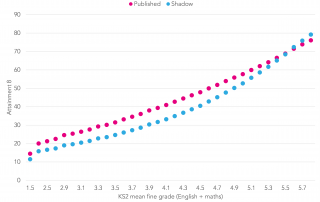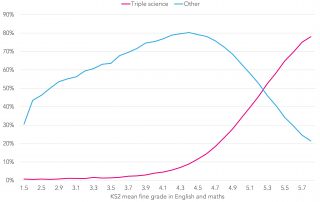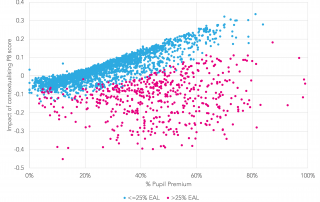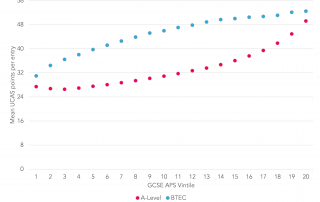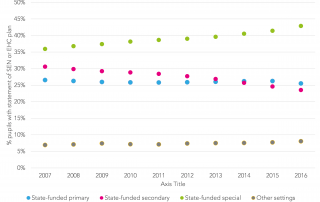Shadowplay
Towards the end of last month, the Department for Education published ‘shadow’ Attainment 8 data for 2015/16 [PDF]. This shows the impact of moving from the familiar scoring of A*-G grades – one point for grade G, up to eight points for grade A* – to the interim scale that will be used in 2016/17 [...]



